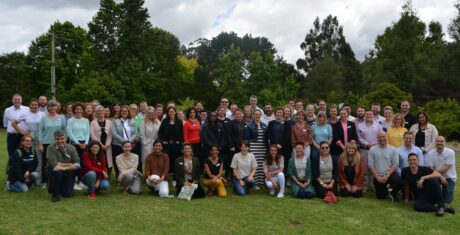 Professor Emeritus Barbara Van Ernst shares some tips for building a successful board for your Not For Profit (NFP) organisation.
Professor Emeritus Barbara Van Ernst shares some tips for building a successful board for your Not For Profit (NFP) organisation.
Choosing the members of a Board of a NFP organisation is as important as it is fraught. Many small NFPs have begun around someone’s kitchen table, with a few passionate people with a common cause, working together to make a difference or to support each other.
Before long there is a need to raise funds and then the realisation that some more formality is required. Many organisations move to become an Incorporated Association and others to a Company Limited by Guarantee. Suddenly there are external compliance and legal requirements because they are dealing with other people’s money. This transition I often describe as a move from a “cottage industry” to a “small business”.
It is important to remember that the Board members are, in fact, Directors of the organisation, with a range of legal responsibilities. You may find that the “founder” of the organisation wants to remain in charge. Sometimes this makes it difficult to manage change, and needs to be addressed.
Things to look out for when building a successful board:
With more formality needed, it is important to focus on members who have ability to plan ahead (strategic thinking), to manage and account for the money (financial responsibility), is able to engage stakeholders (communication skills) and can work through issues together (team work).
There is a need to understand the legal and compliance environment in which you work, but that does not mean you must have a lawyer on the Board. In the event that you need legal advice, you may be able to find assistance pro bono, or otherwise pay for the service.
However, I do think it is a good idea to have a skilled accountant as Treasurer to manage the finances and risk if possible. If not, it is advisable to engage an external expert to assist. This is particularly important to ensure that you follow the new accounting standards for NFP reporting.
The recruitment process:
When you receive applications, you need to consider carefully as you select. In my view, transparency is one of the most important qualities of a successful Board member. As informed decision-making is essential, it is important to develop processes for preparing information so that applicants and other board members have the same information. You are aiming for a team which is open, collaborative, respectful and prepared to work. It is also a good idea to ask a prospective member to attend a meeting as an observer, just to make sure you have found the right new team member.
Written by Professor Emeritus Barbara Van Ernst Am (EBLP’06), LV Program Speaker and Education Consultant
Barbara has had extensive experience in leadership roles, in universities and the community. She was Head of School at Deakin University and Deputy Vice Chancellor at Swinburne University, where her role included responsibility for learning and teaching and community engagement. She was a councillor in local government for nine years and mayor for two, chairing the council and several standing committees. She has also been a member two University Councils, and also a member of boards and government committees, mainly in arts and education.



